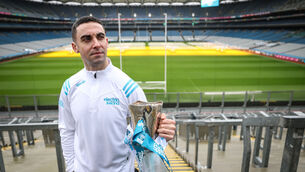Only a blind fool would observe the winter training ban
While looking for the “one way out” from Bono’s “Seven Towers” my eyes were drawn to a huge advertisement hanging from the top of an apartment block.
The banner was promoting an offer for rented rooms at €99 per week. Apparently, a room for €396 a month is some type of bargain.














